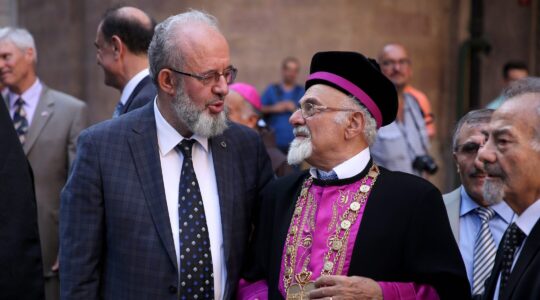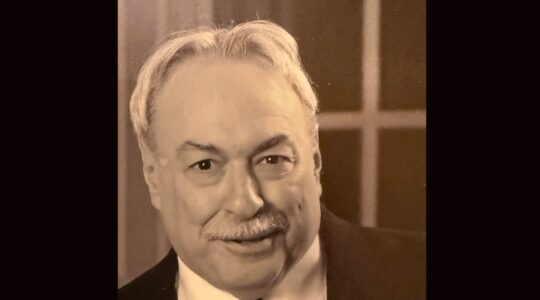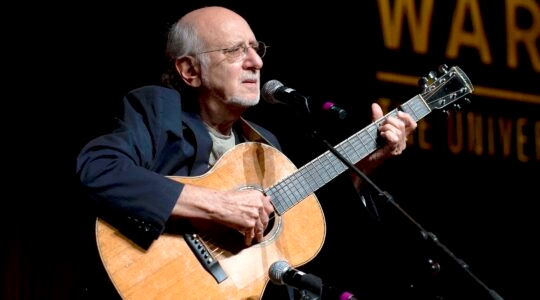(JTA) — Murray Polner, the founding editor of the liberal Jewish magazine Present Tense who served as its editor until it folded, has died.
Polner, who also authored or edited eight books, died on Thursday at the age of 91. He was a resident of Great Neck, New York.
Polner founded Present Tense in 1973 and remained its editor until the American Jewish Committee ended the publication of the magazine during a cost-cutting restructuring in 1990.
Present Tense was widely seen as an alternative to Commentary, the conservative magazine also published by the AJC. The first issue described its mission as “expressing a wide diversity of opinion on the situation of Jews in countries around the world, the special problems of Israel, the relationships among Jewish communities, and those issues and events in the United States and abroad which affect Jewish life and institutions.” Regular contributors like Rabbis Arthur Hertzberg and Balfour Brickner and the novelist Anne Roiphe provided warts-and-all commentary on liberal politics, American Jewish life and the Israel-Diaspora relationship.
Polner later founded and ran a newsletter called “PS: The Intelligent Guide to Jewish Affairs,” in order to continue the same kind of work.
He was a pacifist, anti-war writer and activist, according to The Island Now blog, and often wrote magazine articles as well as letters to the editor about subjects of war and peace. Days before he died he dictated to his son a letter to the editor of The New York Times, asking why the editorial page had not warned about a possible U.S. war with Iran, according to a remembrance posted on the HNN website.
Polner also was a vegan, and he and his wife Louise hosted vegan Passover seders, writer Ralph Seliger recalled.
The child of Russian immigrants, he served in the U.S. Naval Reserve from 1947 to 1952 and then in the U.S. Army from 1953 until 1955, eventually becoming a pacifist and working with anti-war groups to prevent the reinstitution of a military draft.
He taught through the early 1960s at Thomas Jefferson High School in Brooklyn, and then at Brooklyn College, Queens College and Suffolk Community College. Polner received his undergraduate degree from the City College of New York. By the late 1960s he earned a Masters degree in history from the University of Pennsylvania and a Ph.D. in Russian history at Union Institute and University in 1972. He also worked as executive assistant to the first chancellor of the New York City public schools, Harvey Scribner.
He served as book editor for the History News Network until May 2017, and was the editor of Fellowship magazine, published by the Fellowship of Reconciliation, from 1991 to 1993.
He was until recently a regular contributor to the LA Progressive. In his last column, dated Jan. 27 of this year, he wrote of his lifelong love affair with The New York Times as a reader and contributor, and how it had begun to fade. “[A]t times the Times seems to fall for insider leaks from the huge and very secret ‘Intelligence Community’ in our post 9/11 national security state, a development embraced by our some of our most aggressive haters,” he wrote. “Add that to the growing hostility to Russia, China and Iran, which could bring us perilously close to triggering an accidental conflict.”
Polner also wrote a biography of Branch Rickey, the baseball executive who signed Jackie Robinson, the first black player in Major League Baseball, to Polner’s beloved Brooklyn Dodgers.
He is survived by his wife of 68 years, Louise; a daughter, Beth Polner Abrahams; sons, Rob and Alex; and six grandchildren.
JTA has documented Jewish history in real-time for over a century. Keep our journalism strong by joining us in supporting independent, award-winning reporting.





